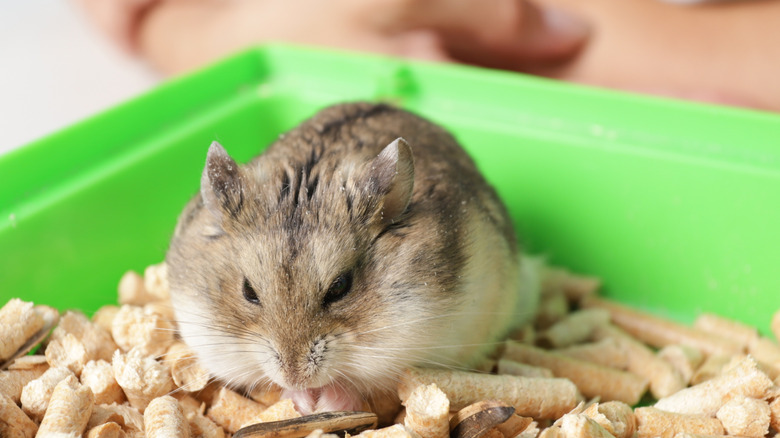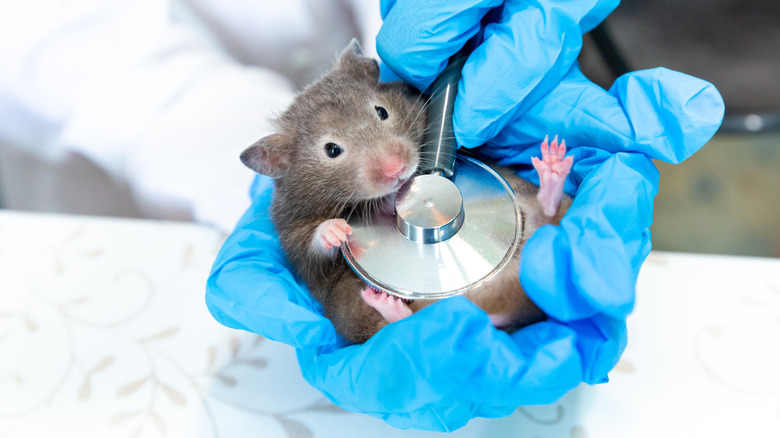Symptoms Of A Stroke In A Hamster
Hamsters are little animals with big personalities, and they make great pets, especially for families with kids who love to watch them scurry, eat, and play. But like any other pet, these cute, tiny rodents can face health struggles, and because they're so little, sometimes those issues get very serious very quickly.
Strokes are actually quite common in older hamsters, but they can also happen to younger ones, so it's important to know the symptoms in order to identify the problem when it occurs. While strokes share some common ground with hamster seizures, the former occurs when the blood flow to the brain is cut off or reduced. According to the Ontario Hamster Club, "The most telling sign of a stroke is weakness on one side of the body. A hamster may appear unbalanced or wobbly and have difficulty getting around. They may have some paralysis in parts of their bodies or a head tilt."
What to do if you think your hamster is having a stroke
There are a few things you can do to help a hamster in the midst of a stroke. The first step is to remove items that could hurt them from their cage. Take out their wheel and any structures with sharp corners. A heating pad could also be helpful if your hamster seems to be having trouble staying warm. Note that Hamsters South Africa advises only using a heating pad outside of your hamster's habitat — either underneath a raised habitat or wrapped in a towel or blanket on top of glass tank or bin cage's meshed lid.
Once your hamster is safe in their cage and comfortable, the best thing you can do is get them to a vet as soon as possible. The vet will be able to get them oxygen to prevent brain damage, but beyond that, there's not a whole lot they can do. Hamsters have much shorter lifespans than other household pets like cats and dogs. Depending on the breed, your hamster may live between one and three years. That's not a lot of time, and any hamster over 18 months old has officially hit elderly status, so just keep that in mind if your pet has a health issue.
While strokes sound scary, are serious, and happen fairly frequently in hamsters, it's also common for these pets to recover and go on to live a healthy life after experiencing one. So it's not necessarily a death sentence, though some hamsters do have live with lasting effects, like a head tilt or weakness on one side of the body.

